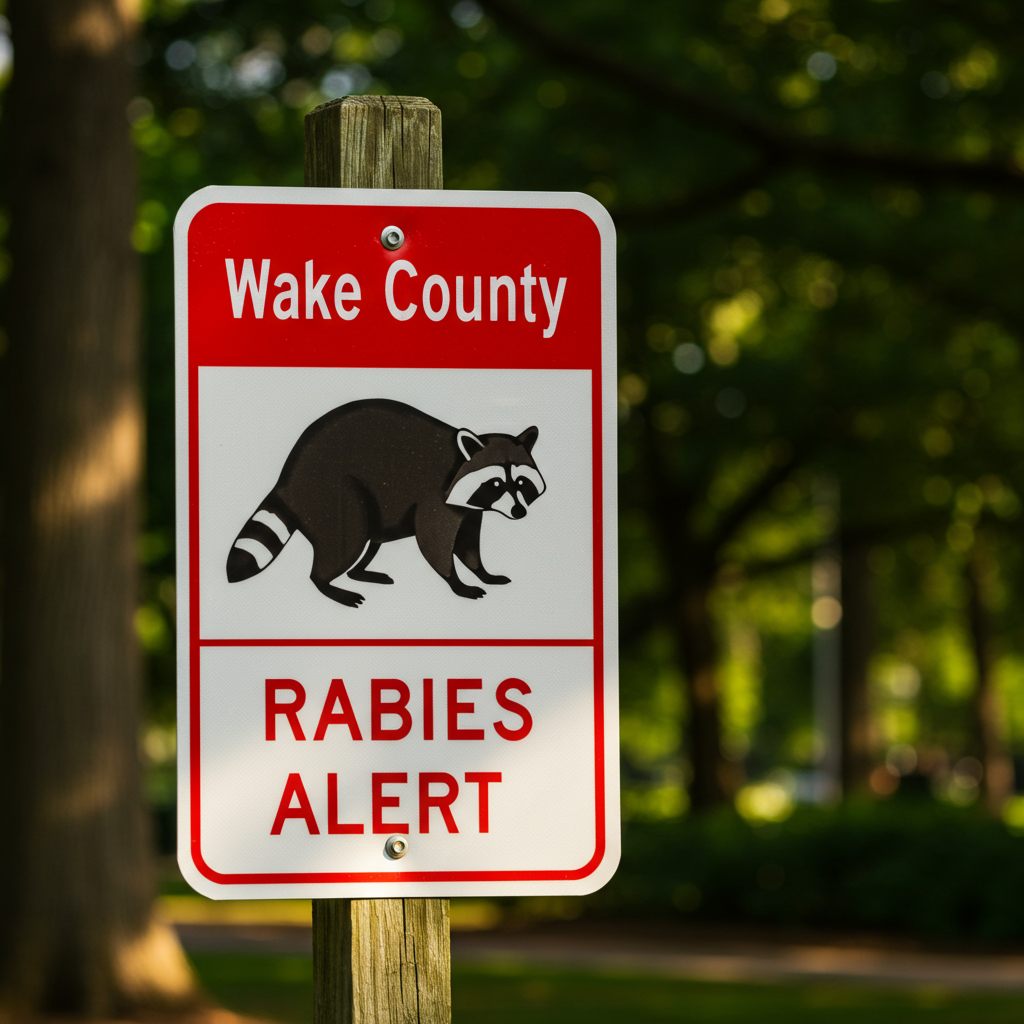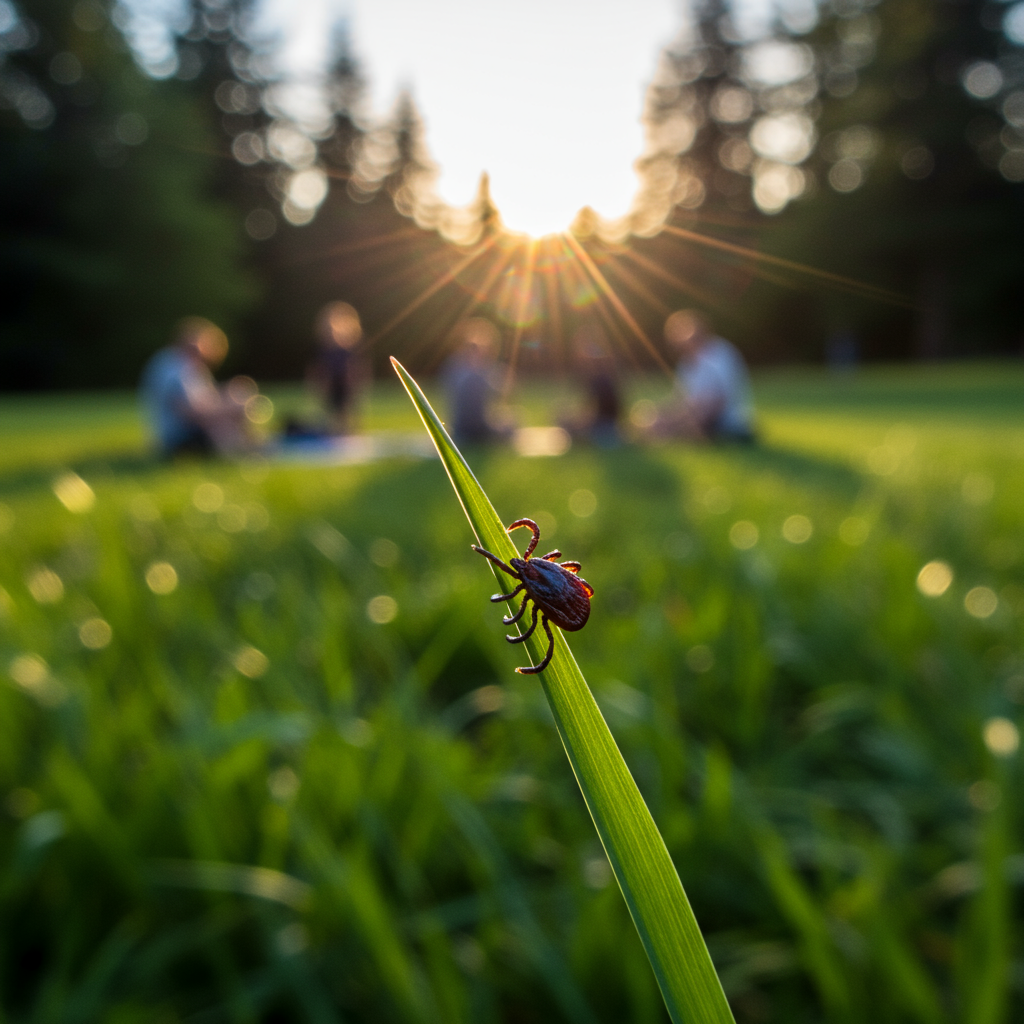Wake County Public Health and Animal Control are alerting residents after a raccoon in Raleigh tested positive for rabies this week. The confirmed case follows an incident on June 19 where the rabid raccoon bit a dog on Windsor Trail (zip code 27615).
Authorities responded to the location, and subsequent testing confirmed the raccoon was infected with the rabies virus. Fortunately, the dog involved was current on its rabies vaccination prior to the bite. The pet received a booster shot as a precaution and is reportedly doing well.
“Rabies remains a significant public health concern,” said Wake County Commissioner Tara Waters. “This incident underscores the vital importance of keeping our pets protected through timely vaccinations. We are relieved this dog was vaccinated, demonstrating how critical these shots are.”
What Residents Should Do
Wake County officials urge anyone in the Windsor Trail area or surrounding neighborhoods who may have had contact with a raccoon behaving unusually to immediately contact the Wake County Communicable Disease line at 919-250-4462.
If you or your pets have been bitten or scratched by any animal of unknown vaccination status, wash the wound thoroughly and seek medical attention or contact a veterinarian right away.
Protecting Your Pets and Family from Rabies
Rabies is a preventable viral disease that is almost always fatal once symptoms appear. It is most often transmitted through the bite of an infected animal, commonly wildlife like raccoons, bats, foxes, and skunks.
Here are key steps residents should take to minimize the risk of rabies exposure:
Vaccinate Your Pets: Ensure all dogs, cats, and ferrets are up to date on their rabies vaccinations as required by law. If your pet spends time outdoors, a booster vaccine following any potential exposure is strongly recommended. Consider keeping outdoor pets inside until their vaccinations are current.
Avoid Unknown Animals: Do not approach or try to pet wild animals or stray domestic animals you do not know. Maintain a safe distance.
Secure Your Property: Prevent attracting wildlife to your home. Store trash in cans with tight-fitting lids. Do not leave pet food or other attractants outdoors, especially overnight.
Report Unusual Animal Behavior: If you see an animal, wild or domestic, acting strangely (such as stumbling, appearing aggressive or overly friendly, or active during unusual times), do not approach it. Contact Wake County Animal Control immediately.
- Seek Prompt Care: If a pet is bitten or scratched by an animal suspected of having rabies, contact your veterinarian immediately for guidance on monitoring, testing, and booster shots.
- www.wake.gov
- www.wake.gov
- www.wake.gov
- www.wake.gov
- www.wake.gov
Wake County is committed to public health and animal safety. The Wake County Animal Center periodically offers free rabies and microchip clinics for pets, providing accessible ways for residents to ensure their pets are protected and identifiable. Check the Wake County website for schedules and locations of future clinics.
Staying informed and taking these preventative measures are the best ways to protect yourself, your loved ones, and your pets from rabies.
For more detailed information, visit wake.gov/StopRabies.



